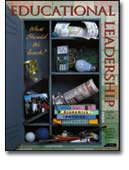Crossing the Water
Crossing the Water: Eighteen Months on an Island Working with Troubled Boys—A Teacher's Memoir by Daniel Robb. New York: Simon & Schuster, 2001.
Crossing the Water: Eighteen Months on an Island Working with Troubled Boys—A Teacher's Memoir is a personal and moving account of one teacher's struggle to teach—and learn from—a group of troubled teenagers. Daniel Robb was one of four adults who taught, supervised, worked, and lived with boys serving court- or social services-ordered six-month terms on Penikese Island, a remote undeveloped island off the Massachusetts coast.
This intensive intervention program challenged everyone involved. Robb details, in vivid language, the tensions, hostilities, frustrations, fears, and escape attempts of the boys—as well as his own burnout. He also describes how the natural beauty of the island and the constant attention from adults transformed the boys. But the program doesn't work miracles for everyone: Some of the boys fall back into their old ways after leaving the island and end up in prison.
This book doesn't give step-by-step recipes or easy answers for understanding and educating at-risk boys. It does, however, provide deeper insights into what might make a difference in students' lives.
Published by Simon & Schuster, Rockefeller Center, 1230 Avenue of the Americas, New York, NY 10020. Price: $24 hardcover.
—Reviewed by Grace Pung Guthrie, co-director, Center for Research, Evaluation, and Training in Education (CREATE), Burlingame, California.
Learning by Heart
Learning by Heart by Roland S. Barth. San Francisco: Jossey-Bass, 2001.
Learning By Heart is the ideal book for administrators and teachers who want to rejuvenate their thinking about schooling. Readers will find it difficult to read this book without scribbling down some of Barth's ideas for putting the heart back into education.
Barth believes that each school's unique culture has a greater impact on the lives of students than any school board or state dictates, and he encourages readers to examine the reforms that their schools need. As Barth shows, such school-specific reforms make a difference in the lives of young people.
Barth's concept of school reform is to build capacity in teachers, students, and administrators. Teachers and students—all learners—should lead their own learning. Moreover, the author notes that principals who have stopped learning are missing the heart of their work. This book challenges readers to make relevant differences aimed at the heart of great learning.
Published by Jossey-Bass, 350 Sansome St., San Francisco, CA 94104. Price: $24.95 hardcover.
—Reviewed by Bruce Gale, principal, McKenzie Lake School, Calgary, Alberta, Canada.
The Energy To Teach
The Energy To Teach by Donald H. Graves. Portsmouth, NH: Heinemann, 2001.
More than pedagogical wisdom or inspired curriculum, teachers need a source of energy that renews their strength each day to face the challenges of a demanding school community. Part research, part memoir, part practical guide, this book offers many examples of ways teachers can "maximize what gives [them] energy and minimize what takes it away."
A meticulous observer of his own practice, Graves has been humbled by the demands of the teaching profession, by the length of time it takes to learn the essential lessons, and by the naive errors he made during the early days of his career. He writes with an authentic voice. Many of the ideas he synthesizes from research and personal experience as a teacher, principal, and writer will seem familiar to veteran teachers. Nevertheless, naming energy-drainers helps teachers recognize them and avoid their negative influence. Graves also reminds teachers of the sources of energy that inspire insight and renew compassion.
Graves invites readers to mine their own experiences for lessons in a series of exercises that guide readers in reflective examination of curriculum, assessment, professional development, and relationships with an eye toward those attitudes and behaviors that either deplete strength—such as dealing with difficult children or unsupportive administrators—or replenish it—such as a sense of collegiality with other teachers and evidence of student learning. He offers examples of successful models of energy producers at the personal, school, and state levels.
Beginner or veteran, rural or urban, teachers who accept Graves' invitation to take time for reflection from an already busy schedule will be rewarded with increased energy and insight.
Published by Heinemann, 88 Post Rd. West, P.O. Box 5007, Westport, CT 06881. Price: $17.50 paperback.
—Reviewed by Steven Levy, 4th grade teacher, Bowman School, Lexington, Massachusetts, and consultant, Expeditionary Learning, Outward Bound.
